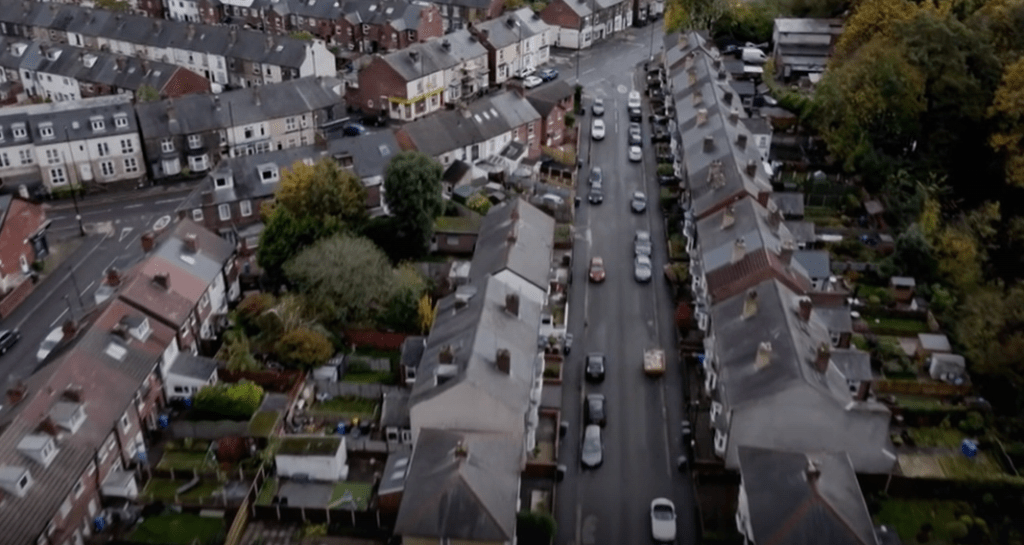By Mark Langabeer, Hastings and Rye Labour member
Last Monday’s BBC Panorama programme was aptly titled, Cost of living: can’t afford a home, because the unavailability of what is really affordable housing is a key element in the cost of living crisis faced by working class people.
The programme give some idea of the scale of the crisis. According to a survey conducted by Panorama, 60% of people asked said that they will have difficulties with housing costs this winter. The presenter, Richard Bilton, interviewed one woman whose mortgage had increased from £300 a month to £850. She complained that it is likely to rise even further so she has decided to sell the home. Her interest rates had risen from 2% to 6 % on a mortgage of £320,000. Housing costs are so astronomic in some parts of the country that it is that level of mortgage that is necessary to get a home of any sort.
Bilton also interviewed a nurse in Bristol who had been served with a so-called ‘no-fault’ eviction. She has a partner and four children and she pointed out that the average three-bedroom house in Bristol costs £1,800 a month and is simply unaffordable. Her application for social housing was refused because her total household annual income was £60,000. This might have sounded a lot a few years ago, but it is by no means a lot today. Her local authority could only provide temporary accommodation, which may result in moves in location on a regular basis. This is a disgraceful way for key workers like nurses to be treated.
Millions of social homes lost in last forty years
The programme reported that over 120,000 children are already living in temporary accommodation because there is no possibility of their parents being able to afford a permanent, affordable home.
Over the past 40 years, the programme explained, over 1.4mn social homes have been lost, and many of them end up in the private rented sector. It also noted that local authorities spend over £1.4bn a year on temporary accommodation.
Last year, over 20,000 people received no-fault eviction notices and this figure is expected to rise this year. Shelter, the housing charity, said that they receive a thousand enquiries a day and that a third of them relate to rent rises. They also pointed out that one in three people are having to borrow to cover housing costs.

The programme also interviewed some tenants living in substandard accommodation. A report from the mis-named Department of Levelling Up, stated that 1.6mn people are living in conditions that are regarded as dangerous and this has been recently highlighted by the tragic death of a two-year old, whose death was causes largely by exposure to fungal spores over a long period of time in the family home.
Currently, over £30bn a year is paid by the government in housing benefit and £8bn of this goes to the private rented sector. One way of looking at this huge cost is that it is the taxpayer who is subsiding greedy private landlords. Joe Shalam, from the Centre for Social Justice, told the programme that a third of homes in the private rented sector are in a state of disrepair, making that £8bn bung to private landlords even more of a disgrace.
Dr Thomas Moore, from the University of Liverpool pointed out that it’s not just those at the bottom of the housing ladder who are experiencing difficulties.
The market is the cause of the housing crisis, not the cure
The Government has estimated that 300,000 homes need to be built each year, but currently only around 150,000 a year are completed. The Tories believe that the ‘market’ should be the principle means of solving the housing crisis, but in reality, the market is the cause of the shortage of affordable homes. The big builders, developers and land hoarders want a shortage of housing because that is what drives house prices up. At the moment, with house prices falling, builders are cutting back on building plans for that very reason. The market is inherently incapable of solving the housing crisis.
In my view, the Labour Party must adopt a massive programme of council house building. That was actually suggested at the last Party conference, by a shadow minister no less. But there are no concrete plans to put the idea into action. A proper plan must provide cheap finance for local government to compulsorily purchase properties, especially those in disrepair, from the private rented sector. It must include the public ownership of all building and development land and the big building companies. Local public works and a national house-building corporation should be the foundation of a plan to build a million homes a year.
Meantime, the Tories announced that social housing rents are to be capped at 7% but not the private sector. Labour should demand a total rent freeze for all in the rented sector and for local authorities to set rent levels according to affordability. No family should be paying a big portion of their income just in rent.
Labour has to have a policy that offers meaningful improvements in housing for ordinary people, not platitudes and aspirations. On that one issue alone, Labour could win a general election with the right policies.
The Panorama programme, which would be good to show in a Labour Party or trade union meeting to provoke a discussion, is available to watch on BBC i-player, here. [Pictures from the BBC programme]




No fault evictions are evil. I know of a lovely hardworking family with young children who received a no fault eviction notice after their landlord had visited the house and saw how it had been transformed from a dump into a very attractive home by their hard work.
They have been moving from one temporary house after another ever since Christmas which is when he evicted them with all the disruption that has meant for the childrens schools and the parent’s work.
The house is now a holiday home which is another evil in attractive rural locations.